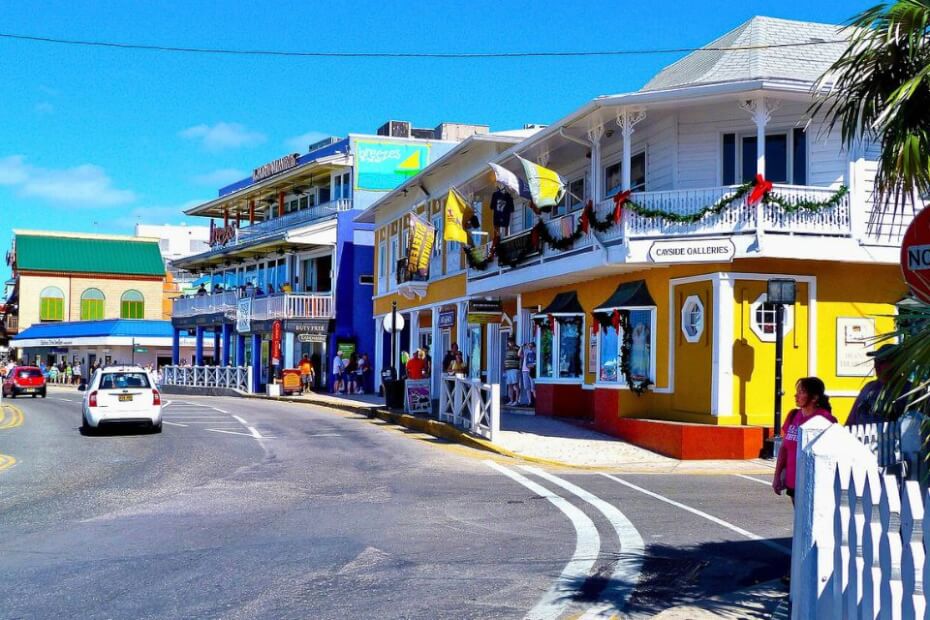
The United Kingdom (UK) government updated its Electronic Travel Authorization (ETA) guidance to add another exemption to the new scheme.
From 4 April 2024, individuals with British Overseas Territory (BOT) passports will not be required to obtain an ETA before traveling to the UK.
BOT passport holders must simply show their valid passports and other identity documents to confirm their ETA exemption.
If BOT passport holders were not included in the ETA exemption, only BOT passport holders with British citizen passports would be exempt from the ETA.
Other exemptions to the ETA scheme besides British citizens are those with Irish passports, UK visas, and immigration status.
Non-Irish legal residents of the Republic of Ireland are exempt from the ETA scheme only if they satisfy two other conditions.
They must also not need a visa to enter the UK and will travel to the UK via the Common Travel Area (CTA).
The CTA comprises the UK, the Republic of Ireland, and the Crown Dependencies Guernsey, Jersey, and the Isle of Man.
The ETA will be mandatory for travelers who do not need a visa to visit the UK for short trips of up to six months.
Visa-exempt nationals will need an ETA before traveling to the UK for leisure, business, study, and transit.
Currently, only travelers from Bahrain, Jordan, Kuwait, Oman, Qatar, Saudi Arabia, and the United Arab Emirates (UAE) require an ETA to visit the UK.
The UK government plans to roll out the ETA on a nationality basis throughout 2024. This includes the European Union and American citizens.
What are British Overseas Territories?
British Overseas Territories (BOTs) are unique territories under the sovereignty of the UK, yet distinct from the UK itself.
Like the Crown Dependencies, the British government is responsible for the defense and international affairs of the territories.
However, each territory has its own government with varying degrees of autonomy.
There are 14 British Overseas Territories worldwide and have a combined population of 270,00.
Ten BOTS are home to settled British nationals.
These include Ascension, St Helena and Tristan da Cunha, Monserrat, British Virgin Islands, Pitcairn, Anguilla, Cayman Islands, Turks and Caicos Islands, Bermuda, Falkland Islands, and Gibraltar.
Other BOTs are home to only scientists or military personnel.
These are the British Indian Ocean Territory, Akrotiri and Dhekelia, South Georgia and the South Sandwich Islands, and the British Antarctic Territory.
British citizens do not automatically have the right to live in BOTs permanently. They must first apply for a visa.
British citizens and British Overseas Territories citizens
There are different categories of British nationals and not all have the same rights. British nationals include:
- British citizens
- British Overseas Territory citizens
- British Overseas citizens
- British subjects
- British nationals (Overseas)
- British protected persons
British Overseas Territory citizens (BOTCs) are British nationals but do not have the same rights as British citizens.
In particular, BOTCs do not have the automatic right to reside or work in the UK.
Under the British Overseas Territories Act of 2002, BOTCs who do not have British citizen passports or who cannot prove their British citizenship are subject to immigration control upon arrival in the UK.
BOTC passport holders do not need a visa to make short visits to the UK for up to six months
However, they will need an appropriate visa to live or work in the UK.
BOTCs who are also British citizens are encouraged to apply for a British passport to work and study in the UK.
They can also apply for a certificate of entitlement to the right of abode to demonstrate their status to the relevant authorities.
Earlier British Overseas Territory reports on the UK ETA
Several local news agencies of British Overseas Territories have previously reported its citizens’ ETA exemption.
However, the ETA exemption of British Overseas Territories has not been indicated on the government’s ETA guidance page until now.
The Ministry of Economy and Labour of Bermuda stated in December 2023 that its citizens are exempt from the ETA, as reported by The Royal Gazette.
In September 2023, Cayman Islands Governor Jane Owen announced that BOTC passport holders would be exempt from the ETA requirement, according to Cayman News Service.
“As now, when visiting the UK, BOTCs will be able to travel on the basis of their BOTC passport without having to apply for prior permission in the form of an ETA,” said Owen.
The Government of Montserrat also released a similar announcement in November 2023.

